With the unemployment rate being so high, it makes the competition for jobs and business even more difficult. And after reading recent articles where interviewees are now bringing their parents along to interviews, I thought that I should ask the fabulous CarolRoth.com contributor network of business owners, experts, advisors and entrepreneurs to provide their best advice for what not to do in a business or job interview. Their answers are presented below in no particular order.
You may notice some similar concepts listed, but I kept the ideas separate, as something in the way one is framed may resonate differently with you.

1. Show Me the Money
Salary is an important issue, but you don't want to appear overly motivated by money. Employers want to hire people who will like their job and have a good work ethic. Asking about money too soon could give the wrong impression. Instead, wait until the employer brings up the issue or until all other pertinent subjects have been explored.

2. Don't Be Every Woman
If you try to be everything, you'll end up being nothing. You need to think, before the interview, about who you want to be and how you want to be remembered after the interview. You can be agreeable while still having a clear point of view and personality. When the interview is over, you don't want the interviewer to say, "I liked that woman in the blue suit" or "I liked that guy with the red hair." You want the person to say "I want to call back that marketing expert!"

3. Don't Frown
It's amazing what a smile will do in an interview. A smile is what brings us all together. A frown, fidgeting and looking out the window at the pretty day outside will ensure that you will be spending more time on the outside, looking in.
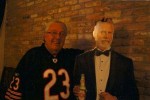
4. Do Not Fake it
Seriously...if the subject turns to macho talk, say, baseball, do not, in Chicago, under any circumstances, reveal your favorite team...unless you can clearly determine White Sox or Cubs favoritism. Then, share your love and commitment for that team. But do not fake it...if it really isn't the team you root for it will show. I have won and lost business by talking up too soon my lifelong favorite team, the...

5. Build First Without Judgment
The first step is to build a relationship. This requires careful selection of the words being spoken. Words such as need, think or should may possibly be viewed as being judgmental. A better word selection might be "May I suggest" or "My sense is."
Your ultimate goal is to secure that new business or new job. You may have only one chance to build a great first impression. Build wisely.

6. Watch That Cleavage
We once interviewed a kind, bright young woman for a job and I might have considered hiring her except that she had seemingly forgotten to wear a shirt. Another person showed up in tattered jeans and held her iPhone in her lap for the whole interview. Even though it may seem superficial, the way you appear in an interview has a strong bearing on an employer's hiring decision. Look your best. If your boss says so, you can kick your shoes off after you're hired.

7. What's the Next Step--NOT!
At the end of your interview, DO NOT ASK "what's the next step?"!!! You have just given over what little control you had to your interviewer. Instead, assuming you mean it--Ask For The Job. It's easy: at the conclusion of the interview, give your interviewer a firm handshake, look them square in the eyes and politely but firmly say "I Want This Job." It works. The competition won't ask.

8. All but Admitting You are Lazy
On more than one occasion, I’ve had employee candidates all but admit they are lazy or unmotivated or both. “I don’t work more than X hours per week” or “I don’t know what my goals are, but I’ll try this for a while, I suppose.” Instantaneous interview stoppers!

9. Never Bite the Hand
Of course, literally, there should never be any biting going on in an interview. It is important to avoid saying anything negative about an employer or client in an interview. Don't share gossip in an interview! Often, people in the same industry know each other and you may really offend someone. Also, hiring managers don't want you to disparage them in your next interview. Finally, being negative is really unattractive.

10. Body Fluids!
Yup, best to avoid exposing someone to your body fluids. That means to get your cold under control before entering the interview. No dripping noses, try not to play around with your saliva, etc. This is not usually an issue if you don't meet over a meal or a drink, but many people have subconscious habits that are best checked before meeting up for business.

11. Don't Negate to Elevate
In a job interview or a sales meeting, you may get asked "why choose you over the competition". Never respond with why someone else can't do the job. Focus on your own unique differentiation & top qualities. If asked specifically about a competitor, consider it a trick question! Always speak of the competition in a gracious, positive manner. This will reflect on your character and integrity, and only build upon the great expertise you demonstrate to help you win that job or client.

12. It's Not a Party or Home
Dressing like you do for a party or normally do at home is just plain stupid. You're trying to make an impression and if you cannot upgrade how you dress, then what is it saying about you, your thinking, your concern for a new employer? After all, this is about them, not you; you are there to impress them and persuade them that you are the best candidate. Party dresses, holes or baggy pants hanging do the opposite.
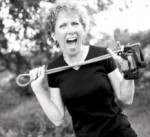
13. Don't Bad Mouth Your Ex-Boss
Don't complain or tell mean stories about your former employer. This will always back-fire!
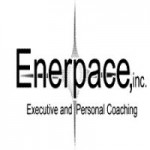
14. Know Before You Go!
The most important thing NOT to do is to fail to prepare! At a minimum, you need to be able to explain why you are interested in THIS particular job at THIS particular company. And why YOU are the best candidate for the job. This position exists to solve some need of the firm. What is it? Do your research and come up with your best guess. Validate that towards the start of the interview and then, spend the rest of the time illustrating why you are the BEST choice for them!
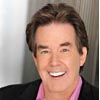
15. Shut Up!
Job seekers or those pitching business often don't know when to "shut up." At a pitch meeting, I watched as my associate kept talking, even after the client gave us a go on the project. The additional chatter gave the client time to think and we LOST the project. When pitching or looking for work, plan what you're going to say in advance. Keep the conversation moving forward, answer questions to the point and don't give away the store. Get the gig! Then, you can talk your head off.

16. Do Your Homework
Do not go into an interview without researching the company and, if you know the person with whom you will be speaking, that person as well. I have conducted a lot of interviews this year. I am impressed when someone knows about the company and has even looked me up online. If it is clear a candidate has not done this, then it will be more difficult for them to get to the next round. You should know why you want to work there and you cannot do that without research.

17. There are No Lifelines
With the recent advent of Helicopter Parenting, where little Bobby or Suzie calls mommy when in a jam at college or at work, this is the wrong tactic to take at a job interview. It's sink or swim; there are no lifelines. So, forget about texting mom - or anyone else for that matter - to ask for help when you face the reality of a job interview.

18. Watch your Inclusive Language
Keep the professional jargon to a minimum. Take the lead from the interviewer. Don't make the mistake that the person interviewing you uses the same professional language that you use or that they know the professional terms that are common place to your job or industry.

19. TOP 3 Tips!
Don't give the interviewer ANYTHING to judge, besides your work history and charisma (i.e. dress professionally, keep the "personal expression" items, hair & wardrobe for another time - unless it's job-related).
Don't talk about anything resembling a "problem" or negative about any past career-related relationships (if absolutely necessary, be very tactful).
Don't reveal YOUR personal "wants" initially. Position yourself to be judged ONLY on what you can do for them until they want & need you.

20. Don't Be Self-Centered
When pitching a business offering or yourself, there is only one goal: show and tell the recipient how THEY benefit from what you offer.
Stay clear of "I" and "Me" statements, focusing instead on "You" and "We" statements.
Avoid asking what's in it for you (how many vacation days do I get, how soon could you pay, etc.) and demonstrate what's in it for the person you're speaking with.
How will THEY benefit by hiring, or doing business with, you? That's what THEY care about!

21. Be Confident, Not Comical!
Establishing rapport is key to a successful job interview. However, unless you are applying for a job at Comedy Central, an interview is not the place for jokes about yourself, your current job or your past employers. Humor is a great tool if used well, but seriousness plays best during an interview. A prospective employer wants to know you have the confidence and gravitas to represent the company professionally. So, focus on knowing what you have to offer and keep the jokes on hold.
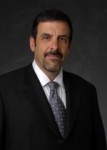
22. Definitely TMI!
Many years ago, I was interviewing a candidate from an Ivy League school to be a financial analyst. The young man was doing quite well until I asked him about an odd item on his resume, under "Other Interests". "What is this about 'Rainforests'?" I asked. "Oh, I just LOVE running naked through rainforests!" he gushed. A quite awkward silence ensued, and no, he didn't get the job.

23. Don't Gossip
On more than one occasion, I have met with people for the first time for business purposes and had them proceed to tell me their unsolicited negative opinions about other people in the community. That is an immediate turn-off for me, partly because I never know what you'll be saying about me once my back is turned. But aside from that, what benefit do you really expect to gain from bringing your emotional baggage into a business meeting?

24. Please Don't Cry!
Many candidates for our new communications position were journalists wanting to transition into media relations. We asked our finalists to tell us about a memorable story they'd covered. One candidate related a touching story about a retiree giving back to his community. While telling the story, our candidate dabbed his eyes. Then, he became so choked up that we had to halt the interview while he pulled himself together. We hired a candidate with heart, but who had better control of his emotions.

25. Applicant Under Duress!
A friend interviewing a teen for an internship had already decided the interview was over before it really began when he came in with shirt un-tucked, long hair in a pony-tail, and wearing jeans. The teen then slouched in his chair the entire interview, answering questions in a bored tone. She finally asked why he had applied for the position in the first place, to which he admitted, "My dad made me." Probably never a good idea to mention that one is applying for a job to avoid harm!

26. Don't Talk the Whole Time
Yes, a job interview is an opportunity to sell yourself and land the job of your dreams, but if you spend all of your time self-promoting, not listening to the questions being asked, or talking over your interviewers, you'll not only leave a bad impression, but you'll miss out on the important clues that help you hone your message and communicate in their language. You may miss clues that it's not the right place for you. Not every job is worth it...so ask a few questions, too!

27. Don't Hide Weakness
Anyone who's hired for long enough has been burned - badly - by people who have "yes-ed" their way through an interview. So, when you're asked about weaknesses, we can see through lame responses like "I work too hard." Take a real weakness (hopefully not a core job competency) and completely OWN it. Bam - instant credibility!

28. Keep Your Feet on the Ground
The one best piece of advice regarding what NOT to do during a business or job interview is to keep crossing and uncrossing your legs. It’s natural to be nervous during an interview; however, if you keep crossing and uncrossing your legs, you can send the wrong message (think Sharon Stone). Sit up straight with your feet firmly on the ground. Ladies can cross their ankles. If you’re not taking notes, fold your hands and place them on your lap. Relax and you’ll have a successful interview.

29. Think WIFT, Not WIFM!
One of the best ways to ensure that you won’t get the job is to ask too soon about benefits, vacation days, and salary. Having a “what’s in it for me” attitude is a sure way to make the wrong impression. Instead, think “what’s in it for them” and you’ll make the right kind of points. Do your homework in advance so you’ll know about the company and its key personnel. Rehearse possible questions and your answers. Dress appropriately. Good luck!

30. The Window to the Soul
Eye contact is critical to revealing sincerity and honesty. DO NOT avoid eye contact with your potential employer or business partner. Looking someone in the eyes is difficult to do for many, but when mastered, conveys an openness and higher level of emotional intelligence. Although some countries suggest not looking someone in the eyes because it is a means of dominance, it is a techniques accepted within U.S. business practices.

31. Take Your Attire Up a Notch...
You've applied for the position you want, and you're scheduled for an interview. Now comes the question: what do you wear? Changes in the world of business mean that the standard dark suit may no longer work. Even if your potential employer seems more 'business casual' than 'strictly business', plan on dressing UP a notch for the job you want. You can always 'loosen up' an outfit to make it more relaxed, but you can't 'tighten' one up. Don't risk your first impression on a questionable outfit.

32. You Can't Ignore Stink!
Lay off the perfume and cologne, and shower/bathe. It seems silly to remind adults, but hygiene matters in professional settings. No one can listen to your great ideas if their eyes are watering because of your over use of chemical products or the scent of your quick but spicy lunch. Interviewers have a lot of things competing for their attention. Make sure your qualifications are not overshadowed by something preventable like body odor or bad breath. Can't be bothered? Freelance it at home.

33. Don't Talk About Money
Don't talk about salary in the first interview; it is considered low class. You should wait at least until the second interview before discussing your salary.

34. Be Thou Prepared!
I chose to have two dress shirts that I use meticulously for interviews ONLY. On one occasion, I pulled THREE dress shirts from the plastic protector wrap and even AFTER bringing them to professional launderer services, they still came back pretty beat. It is all about BEING PREPARED!

35. Gossiping is Bad Mojo
Never gossip or speak badly about anyone you've worked with or for. Even if it made the front page of the newspaper, and they're serving time in prison for what they did. Your job is to get this job, not be a reporter for TMZ. Even if the person that's interviewing you tries to cajole you into spilling the beans, it's all a test of your integrity. Don't take the bait; pass the test!

36. Turn it Off!
I love this question. I recently interviewed a former student of mine for an internship at my company. During the interview, her cell phone rang. OK I can forgive the error, but she answered, finished a brief conversation and announced that we could now begin. The interview was over. My advice: turn it off and certainly don't answer if you forget! There is an off button.

37. Be Prepared People!
It is amazing to me how many people come to interviews today with little to no knowledge about the company, its mission statement, its competition, the key players within the company or even basic knowledge on the people they will be interviewing with.
All of this information is available in 15 minutes on the web.
My attitude is that if someone cannot come into an interview with at least a working knowledge or who we are as a company, the interview is over before it starts.

38. Act Aloof
During any interview, never act aloof or not interested. Let's be honest, what are you doing there if you are not interested in the position or opportunity? So, if that is the case, sit a little forward in your seat (never back), maintain good eye contact throughout (never stare or let your eyes drop down when speaking) and respond with clear and concise answers (showing that you are listening and prepared to respond). Being truly engaged will usually get you further than your competition.
Thanks to: Myles Miller of
LeadUP.

39. No - Don't Do it
When you are asked "What is your greatest weakness?" do not tell them that sometimes you are a little disorganized.
Actually, the point is, don't refer to any of your personal traits when asked that question. Instead, make sure you notice what skill in the job description you are not up-to-date using.
A reply might be: "I see you are asking for someone with outstanding Excel skills. I've certainly used it, but I'm signing up for a refresher course."

40. Counting Banks
Upon qualifying for the final interview in Silicon Valley, an I.T. professional asked the hiring Manager, "How many banks are nearby?" The applicant continued with, "My final decision about taking the job will be based upon your answer." Needless to say, the gentleman was not hired. The Manager feared the applicant might have been conspiring to rob a nearby bank!
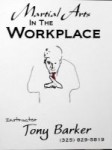
41. Don't Be a Self-absorbed Jerk
"What's in it for me?" It's a legitimate question, but if you can't answer it for BOTH PARTIES, you don't belong in the meeting.
It's about doing your homework; knowing if your proposal answers a need. It's about showing up for a job interview with more than your paycheck on your mind.
America was made Great by people that stuck it out when things got tough. It leaves a Mark on you, and since they're the ones now making hiring/promotion decisions, they're looking for that Mark in YOU.

42. Air Dirty Laundry
I've interviewed 100's of potential employees and the one thing that I find very unprofessional is when a candidate just can't wait to tell me all of the things their previous employer did wrong.
If 50% of the interview is them complaining, then I question their intentions and their ability to work through conflict and find solutions to problems.
People who live to complain are often the first to start complaining within days of their start date and degrade moral from the inside out.

43. Speak Less/Listen More
As an agency recruiter, the most common interview mistake that I see is talking too much. When interviewing, your answers should be concise and to the point. If your answer is taking two minutes or longer, you are speaking at least a minute too long. The interviewer can ask a follow-up question at any time, if he or she chooses. Often, when candidates are nervous, they tend to give too much tangential information and once you’re off the main topic, it’s difficult to get back to the point.

44. Badmouthing is Uncool
During an interview to obtain business, never Badmouth Your Competitors! You want to show how you are different from your competitor to allow the person you are "interviewing with" to come up with a positive picture of your goods or services. If it is a job interview, you do not bad mouth your past employers, as it can be the fastest way out the door without getting offered a position.

45. Cellular Lifelines
Do not take - or make - cell phone calls during your interview. Seems pretty obvious, right? And yet, I recall the time I asked a candidate a hypothetical question that immediately compelled him to speed-dial a number on his cell and ask the person on the other end of the line what he should answer. Had this guy watched too many episodes of "Who Wants to Be a Millionaire"? When asked to explain himself, he replied with a casual shrug, "You didn't say a lifeline call wasn't allowed."

46. ZIP
Your mouth must be like a ZIP, keep it closed and only open it after a great deal of thought during the interview. Try not to look tense, but on the other hand, do not look complacent. You want the job, so look KEEN and interested in whatever your interviewer says. You have to charm them, so listen carefully to what they ask you, and think carefully before you answer and above all, remember that ZIP.

47. Hip Hip Hooray!
School spirit is great in school, at games, alumni gatherings or recruitment events, BUT not on an interview.
The thing that matters is your ability to satisfy your client or potential employer. Who cares what your school colors are or what the mascot was- not the person sitting across from you.
Make your reference to your school point to the quality of education that you received, not how many toga parties you sponsored. Make your school proud by sealing the deal.

48. Burning Man Burns Bridges
When asked, “Where do you want to be in 3 years?” a candidate that didn’t want the job posted his reply on Facebook, “Naked, running through the desert with 100,000 lunatics free of corporate dependence.” Didn't get the job. Don't be fully honest.” All true! Why not use a bit of discretion with what you share, and how? Why burn bridges? Is losing a future job there, or one within the network of that interviewer, worth that moment, that story? Think managers don’t talk? Think again.

49. "You're So Lucky"
Are you a Baby Boomer with years of experience, who may not need to but really enjoys & thrives on working? Don't assume your resume says all good things about you to your potential employer & they're lucky to have you! Don't use a chronological format. It is illegal to ask your age but adding up all those years of experience, they may have their own preconceived notions about your expectations and current talents and conclude it will be better to give the opportunity to someone younger.
Do you have another tip that wasn’t included? If you do, please share it below. And as always, many thanks to everyone that contributed to this article!


















































